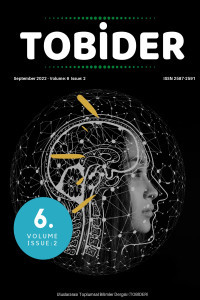The translation of idioms and equivoques as a challenge for the translators and their decisions (based on examples from episode 1 and 5 of the first season of the British series Mind Your Language)
The translation of idioms and equivoques as a challenge for the translators and their decisions (based on examples from episode 1 and 5 of the first season of the British series Mind Your Language)
The article dwells on translation strategies for the translation of idioms, proverbs and equivoques, focusing on one of the most successful British sitcoms, Mind Your Language from 1977. The article studies how humor is preserved and how persistent phrases are translated when there is no equivalent expression in the target language. The work introduces some of the solutions of the Bulgarian translator of the film. In times when the translator cannot find the appropriate idiom this could alter the initial idea of the text and change the translation to a non-idiomatic expression. A literal translation, however, in most cases, brings confusion to the reader and may lead to a misrepresentation of idioms and misunderstanding of the final product. The article follows the idea that in translation the expression should not lose its cultural meaning, but be paraphrased so as to preserve the impact of the idiom.
Keywords:
idioms, equivoque, translation strategy, film series humor,
___
- Baker, M. (1992). In Other Words: A Course Book on Translation. London and New York: Routledge.
- Larson, M.L. (1984) Meaning-Based Translation: A Guide to Cross-Language Equivalence. University Press of America, Lanham, MD.
- Longman Dictionary of Idioms. (1998). UK: Longman.
- Линк към епизод 1 сезон 1 на сериала „Внимавай какво говориш“ https://www.videoclip.bg/watch/1548421_vnimavaj-kakvo-govorish-sezon-1-epizod-1-bulgarsko-audio
- Линк към епизод 5 на „Внимавай какво говориш“ - https://www.videoclip.bg/watch/1549623_vnimavaj-kakvo-govorish-sezon-1-epizod-5-bulgarsko-audio
- Başlangıç: 2017
- Yayıncı: Sadık Hacı
Sayıdaki Diğer Makaleler
TARİHTE AKTARILDIĞI ŞEKLİYLE KADIN İMGESİ VE SİMONE DE BEAUVOİR
HÂREZMŞAHLAR DEVLETİ’NDE İN’ÂM, İHSAN VE DİĞER HEDİYELER
TÜRKİYE’DE CEMAAT MEDYALAŞMASINA DAİR İLİŞKİSEL BİR SÜREÇ OKUMASI
ACIYI HİSSETMEK AMA YİNE DE UMUT ETMEK: KRİZ GAZETECİLİĞİNDE DUYGU VE SÖYLEM
KIRŞEHİR TÜRKÜLERİNİN DEĞERLER EĞİTİMİ AÇISINDAN İNCELENMESİ: NEŞET ERTAŞ ÖRNEĞİ
Gülden Filiz ÖNAL, Hamit ÖNAL, Ozan GENÇ
ENERJİ GÜVENLİĞİ BAĞLAMINDA AB ENERJİ POLİTİKALARI ve AB-ORTA ASYA İLİŞKİLERİ
